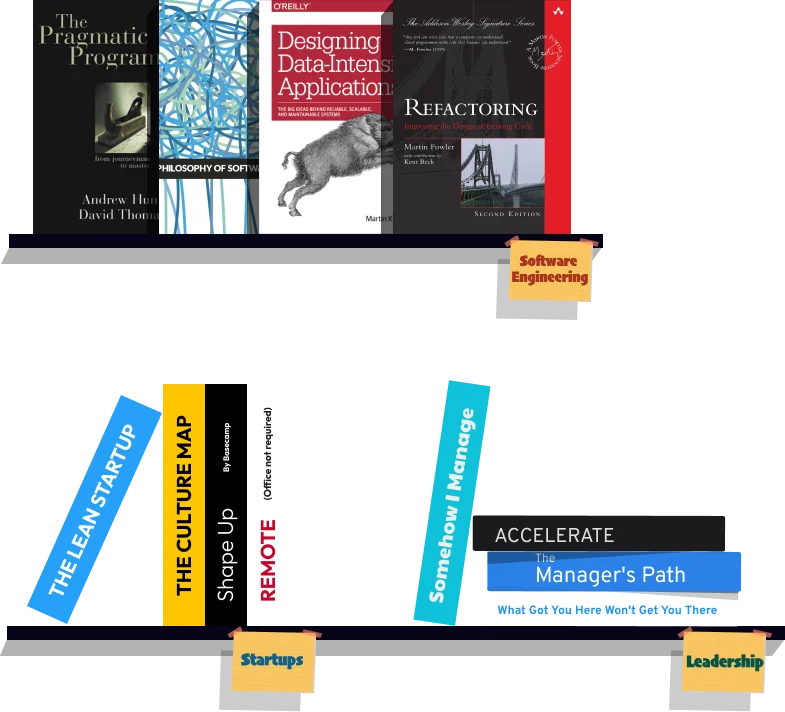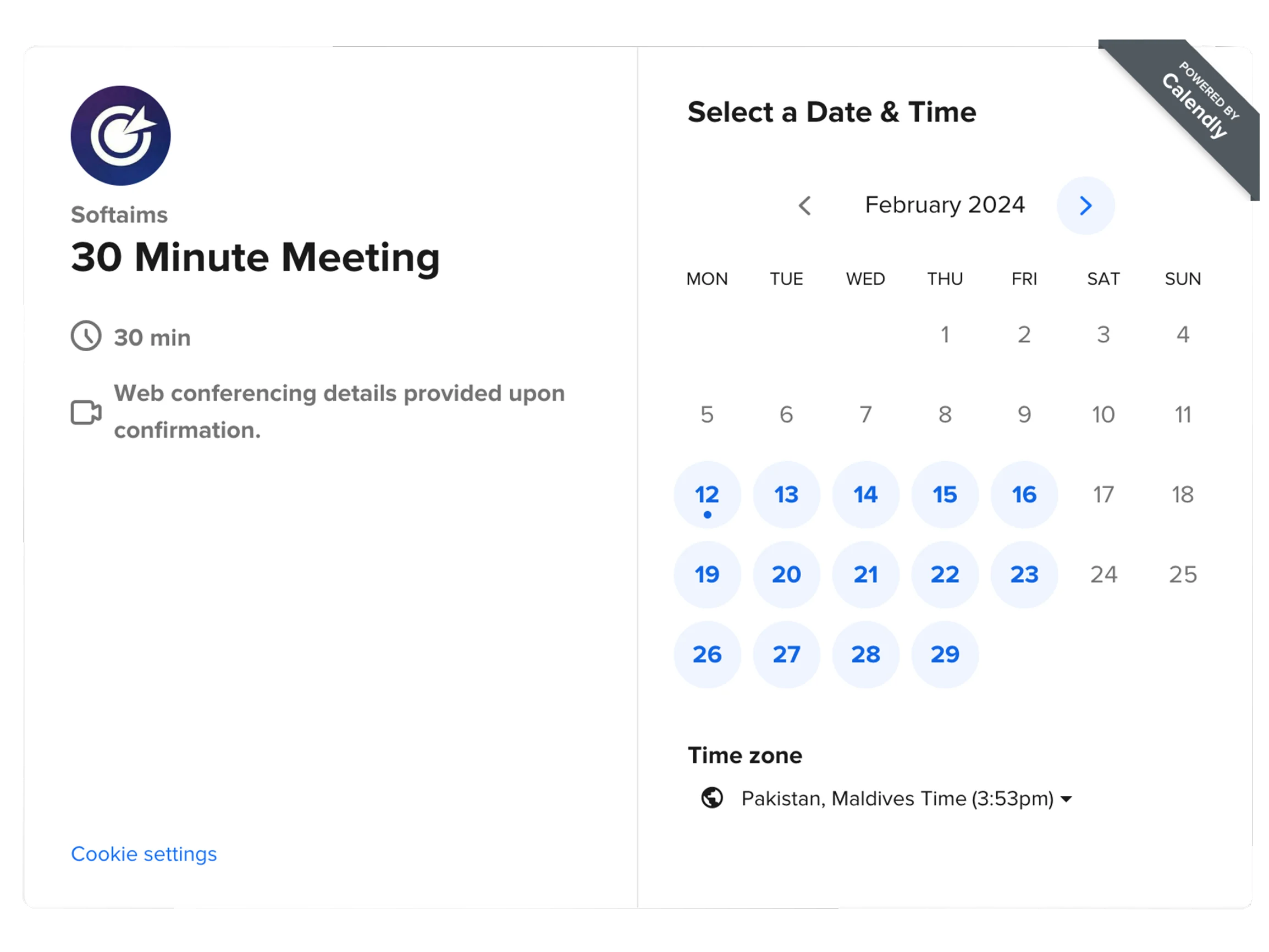Introduction to Hiring AI Engineers
As companies strive to integrate artificial intelligence (AI) into their operations, hiring skilled AI engineers has become a priority. These professionals are pivotal in designing and implementing AI models that can enhance decision-making, automate tasks, and offer competitive advantages. However, the process of hiring AI engineers is nuanced, requiring a deep understanding of both technical capabilities and industry-specific needs. Artificial intelligence encompasses various subfields, such as machine learning, deep learning, and natural language processing, which means that identifying the right expertise is crucial for successful implementation.
Given the diverse applications of AI, ranging from healthcare diagnostics to autonomous vehicles, it's essential to tailor the hiring process to match your organization's specific objectives. Whether you're looking to develop predictive analytics tools or enhance customer service with chatbots, understanding the distinct roles and specializations within AI engineering is vital. This guide will help you navigate the complexities of hiring AI engineers, offering insights into necessary skill sets, tools, and strategies for finding top talent. Learn more about AI applications to better align your hiring criteria with your business goals.
Understanding the Role of AI Engineers
The role of an AI engineer is multifaceted, involving the development and deployment of AI systems that can learn and make decisions. AI engineers typically work with large datasets, utilizing machine learning algorithms to derive insights and optimize performance. They are adept at programming languages like Python and R, which are essential for data manipulation and model development. Moreover, they must understand data structures and algorithms to efficiently process and analyze data.
In addition to technical skills, AI engineers need to communicate complex concepts to non-technical stakeholders, translating technical findings into actionable business insights. This requires a strong foundation in both technical and soft skills, such as collaboration and problem-solving. AI engineers are often involved in research and development (R&D) to stay ahead of the latest advancements and integrate cutting-edge technologies into their solutions.
Furthermore, AI engineers must be proficient with frameworks like TensorFlow and PyTorch, which facilitate the creation of complex neural networks. Understanding these tools allows engineers to build scalable models that can be deployed in production environments. The ability to work with cloud platforms like AWS and Azure is also advantageous, as these platforms provide the computational power necessary for training and deploying AI models.
As AI continues to evolve, the demand for AI engineers with specialized knowledge, such as natural language processing (NLP) and computer vision, is increasing. These engineers are responsible for developing systems that can interpret human language and recognize visual patterns, respectively. NLP and computer vision are critical components of many AI applications, from virtual assistants to autonomous vehicles.
Key Skills to Look for in AI Engineers
When hiring AI engineers, it is crucial to assess both technical and soft skills. On the technical side, proficiency in programming languages such as Python and R is essential due to their widespread use in data science and AI applications. Familiarity with data manipulation libraries like Pandas and NumPy is also important, as they enable efficient data handling and preprocessing.
Another critical skill is the ability to work with AI frameworks such as Keras and Scikit-learn. These frameworks simplify the process of building and deploying machine learning models. Engineers must also understand the principles of neural network architectures and algorithms, which are foundational to developing AI systems.
In addition to technical prowess, AI engineers should possess strong analytical skills to interpret data and derive meaningful insights. They need to be adept at problem-solving and have the ability to think critically about complex challenges. Communication skills are equally important, as AI engineers often work in cross-functional teams and must convey technical information clearly to diverse audiences.
Furthermore, AI engineers should have experience with version control systems like Git, which are essential for managing code and collaborating with other developers. Knowledge of cloud platforms such as AWS, Azure, and Google Cloud is also beneficial, as these platforms provide the infrastructure needed for deploying AI models at scale.
Finally, a strong understanding of the ethical implications of AI is important. Engineers should be aware of potential biases in AI systems and work to mitigate them to ensure fair and unbiased outcomes. This includes understanding the principles of explainable AI and being able to assess the impact of AI decisions on individuals and society.
Red Flags to Watch for in AI Engineer Interviews
When interviewing AI engineers, it's essential to identify red flags that may indicate a lack of expertise or suitability for the role. One major red flag is an inability to explain the "black box" logic of AI models. Candidates should be able to articulate how their models make decisions and what factors influence outcomes. If they struggle to do so, they may not be ready for a senior-level position.
Another red flag is a lack of experience with version control systems such as Git. Version control is crucial for collaborative development, and candidates who are unfamiliar with these tools may struggle to work effectively in a team environment. Additionally, a candidate who lacks knowledge of cloud platforms like AWS or Azure may not be equipped to deploy AI models at scale.
During interviews, pay attention to how candidates handle questions about ethical considerations in AI. If they dismiss the importance of ethics or fail to recognize potential biases in AI systems, it could indicate a lack of awareness or concern for the broader implications of their work. This is especially critical in industries where AI decisions can have significant impacts on individuals, such as healthcare or finance.
Lastly, be cautious of candidates who overstate their expertise or experience. Look for evidence of their contributions to AI projects, such as published papers or open-source contributions. Verify their claims by asking for specific examples of projects they've worked on and the role they played in those projects. This will help you assess whether their experience aligns with your organization's needs.
How Much Does It Cost to Hire AI Engineers
| Country |
Average Salary (USD) |
| United States |
$110,000 - $150,000 |
| United Kingdom |
$70,000 - $110,000 |
| Canada |
$80,000 - $120,000 |
| Australia |
$90,000 - $130,000 |
| Germany |
$80,000 - $120,000 |
| Switzerland |
$120,000 - $160,000 |
| India |
$20,000 - $40,000 |
| Singapore |
$70,000 - $110,000 |
| Israel |
$90,000 - $130,000 |
| Japan |
$80,000 - $120,000 |
When to Hire Dedicated AI Engineers Versus Freelance AI Engineers
Deciding whether to hire dedicated AI engineers or engage freelancers depends on the scope and scale of your AI projects. For long-term projects requiring continuous development and maintenance, hiring dedicated AI engineers is often the best approach. These engineers become integral to your team, gaining a deep understanding of your business operations and objectives, which enables them to tailor solutions effectively.
Dedicated AI engineers are particularly beneficial for organizations with extensive AI needs, as they can focus solely on advancing AI capabilities without the distraction of juggling multiple clients. Platforms like Softaims offer both dedicated and freelance hiring options, allowing companies to choose the model that best fits their requirements. Hiring dedicated engineers through such platforms ensures you have access to vetted professionals with the necessary expertise.
On the other hand, freelance AI engineers are ideal for short-term projects or when you need specialized skills not available in-house. Freelancers offer flexibility and can be brought in to address specific challenges or augment your team during peak periods. This model is cost-effective for projects with defined timelines and deliverables, as you only pay for the work completed.
However, one potential drawback of hiring freelancers is the lack of continuity. As freelancers often juggle multiple projects, their availability may be limited, which can impact project timelines. Additionally, freelancers may not have the same level of commitment to your company as dedicated employees, as their focus is divided across various clients.
Ultimately, the decision between hiring dedicated AI engineers versus freelancers should consider factors such as project duration, budget, and the need for specialized skills. Both models have their advantages and can be leveraged to meet different organizational needs, ensuring you have the right talent for your AI initiatives.
Why Do Companies Hire AI Engineers
Companies hire AI engineers to harness the transformative power of artificial intelligence, which can drive innovation and efficiency across various sectors. AI engineers play a crucial role in developing systems that can automate routine tasks, analyze large datasets, and provide insights that inform strategic decision-making. Their expertise enables businesses to stay competitive in an increasingly digital landscape.
One of the primary reasons companies hire AI engineers is to improve operational efficiency. AI systems can streamline processes, reduce errors, and enhance productivity by taking on repetitive tasks that would otherwise require significant human resources. This automation allows employees to focus on more strategic activities, ultimately driving business growth.
Furthermore, AI engineers help organizations gain a deeper understanding of customer behavior and preferences through data analysis. By leveraging machine learning algorithms, companies can personalize customer experiences, leading to increased customer satisfaction and loyalty. This approach is particularly valuable in industries such as retail and finance, where personalized services can significantly impact customer retention.
In addition to operational improvements, AI engineers contribute to innovation by developing new products and services. For instance, AI-driven tools in healthcare can assist in diagnosing diseases, while AI-powered financial solutions can enhance fraud detection and risk management. The ability to innovate continuously is a key competitive advantage for businesses, making AI engineers essential for driving growth and success.
Lastly, companies hire AI engineers to ensure they remain at the forefront of technological advancements. As AI technology evolves rapidly, having skilled professionals within the organization ensures that companies can quickly adopt new tools and methodologies. This adaptability is crucial for maintaining a competitive edge and responding to market demands effectively.
Tools and Technologies Used by AI Engineers
AI engineers utilize a wide array of tools and technologies to develop and deploy AI systems. These tools encompass programming languages, frameworks, and platforms that facilitate the creation of robust and scalable AI models. Python is the preferred language for AI development due to its extensive libraries and ease of use. Libraries such as NumPy and Pandas are crucial for data manipulation and analysis.
Frameworks like TensorFlow and PyTorch are essential for building neural networks and deep learning models. These frameworks provide pre-built functions and tools that simplify the process of creating complex AI systems. Additionally, they support deployment on a variety of platforms, from cloud environments to edge devices.
Cloud platforms such as AWS, Azure, and Google Cloud offer the infrastructure needed to train and deploy AI models at scale. These platforms provide the computational power necessary for handling large datasets and running complex algorithms. They also offer services for data storage, processing, and machine learning model deployment.
AI engineers also use tools for data visualization and reporting, such as Matplotlib and Seaborn. These tools help in understanding data patterns and communicating insights to stakeholders effectively. Version control systems like Git are indispensable for managing code and collaborating with team members.
- Programming Languages: Python, R
- Data Manipulation Libraries: NumPy, Pandas
- AI Frameworks: TensorFlow, PyTorch, Keras
- Cloud Platforms: AWS, Azure, Google Cloud
- Data Visualization Tools: Matplotlib, Seaborn
- Version Control Systems: Git
Interview Questions for AI Engineers
Conducting interviews for AI engineers requires questions that assess both technical expertise and problem-solving skills. Asking candidates to explain their understanding of key AI concepts, such as supervised and unsupervised learning, can reveal their foundational knowledge. You might ask, "Can you describe the differences between supervised and unsupervised learning?" This question tests their grasp of fundamental AI techniques.
Another important area to explore is their experience with AI frameworks and tools. A question like, "How have you used TensorFlow or PyTorch in your previous projects?" allows candidates to demonstrate their practical experience and familiarity with industry-standard tools. Their response can provide insights into their ability to apply theoretical knowledge to real-world scenarios.
Problem-solving skills are critical for AI engineers, and scenario-based questions can help evaluate this aspect. For example, you could ask, "How would you approach optimizing a deep learning model that has high training accuracy but low validation accuracy?" This question assesses their analytical thinking and capacity to troubleshoot common challenges in AI development.
It's also beneficial to gauge their understanding of ethical considerations in AI. A question like, "What measures would you take to ensure fairness and reduce bias in AI models?" encourages candidates to reflect on the broader implications of their work. Their response can indicate their awareness of ethical issues and their commitment to developing responsible AI solutions.
Lastly, communication skills are vital, especially in collaborative environments. Ask candidates to present a past project to assess their ability to convey complex information clearly. This can help you determine whether they can effectively communicate technical concepts to both technical and non-technical audiences.
Evaluating AI Engineer Portfolios
Reviewing AI engineer portfolios is an essential step in assessing a candidate's capabilities and experience. A strong portfolio should showcase a range of projects that highlight the engineer's technical skills and problem-solving abilities. Look for projects that demonstrate their expertise in working with different datasets and applying various machine learning algorithms.
Pay attention to the complexity and scope of the projects included in the portfolio. Projects that involve large datasets or require the integration of multiple AI techniques indicate a high level of proficiency. Additionally, consider the candidate's contributions to open-source projects on platforms like GitHub, which can showcase their collaborative skills and willingness to engage with the wider AI community.
Another important aspect to evaluate is the candidate's ability to document their work. Well-documented projects with clear explanations of the problem, methodology, and results are indicative of strong communication skills. This is crucial for ensuring that others can understand and build upon their work.
It's also valuable to assess any published papers or articles that the candidate may have authored. Publications in reputable journals or conferences demonstrate their commitment to advancing the field of AI and can provide insights into their areas of expertise. Look for evidence of innovative solutions or novel approaches that set them apart from other candidates.
Trends in AI Engineering
The field of AI engineering is continually evolving, with new trends emerging that shape the industry's future. One significant trend is the growing emphasis on ethical AI, which focuses on developing systems that are fair, transparent, and accountable. This trend is driven by concerns over biases in AI models and the need for algorithms that make decisions without discrimination.
Another trend is the increasing use of AI in edge computing, where data processing occurs closer to the source rather than in centralized data centers. This approach reduces latency and allows for real-time decision-making, which is crucial for applications like autonomous vehicles and IoT devices. Edge AI is gaining traction as it enables faster and more efficient data analysis.
In addition to technological advancements, there is a growing demand for AI engineers who specialize in specific domains, such as healthcare, finance, or cybersecurity. Domain-specific expertise allows engineers to develop tailored solutions that address unique industry challenges. This trend highlights the importance of combining technical skills with industry knowledge.
AI engineering is also increasingly focusing on explainability and interpretability. As AI systems become more complex, there is a need for tools and methodologies that help stakeholders understand how AI models arrive at their decisions. This is essential for building trust and ensuring that AI systems can be effectively audited and regulated.
Building a Strong AI Engineering Team
Building a strong AI engineering team requires careful consideration of the skills and expertise needed to meet your organization's goals. Start by defining the specific roles and responsibilities required, such as data scientists, machine learning engineers, and AI researchers. Each role contributes differently to the development and deployment of AI systems.
When assembling your team, look for a balance of technical and soft skills. While technical expertise is crucial, strong communication and collaboration skills are equally important for ensuring that team members can work effectively together. Encourage a culture of continuous learning and innovation, where team members are empowered to explore new ideas and technologies.
Consider the diversity of your team, as diverse perspectives can lead to more innovative solutions and better decision-making. A diverse team can also help identify and mitigate biases in AI systems, ensuring that your solutions are fair and inclusive. Foster an inclusive environment where all team members feel valued and heard.
- Define Roles and Responsibilities
- Balance Technical and Soft Skills
- Encourage Continuous Learning
- Promote Diversity and Inclusion
- Foster a Collaborative Culture
- Empower Innovation
Continuous Learning and Development for AI Engineers
Continuous learning and development are essential for AI engineers to keep pace with the rapidly evolving field. Encourage engineers to engage in ongoing education through online courses, workshops, and conferences. Platforms like Coursera and Udacity offer specialized AI courses that can enhance their skills and knowledge.
Providing opportunities for professional development within your organization can also support continuous learning. Consider implementing mentorship programs where experienced engineers can guide and support newer team members. This fosters a culture of knowledge sharing and collaboration, benefiting both individuals and the organization as a whole.
Additionally, encourage AI engineers to contribute to research and development initiatives. Involvement in R&D projects allows engineers to explore new ideas and push the boundaries of what is possible with AI. Supporting research efforts not only enhances individual skills but also contributes to the organization's innovation and competitiveness.
Finally, staying informed about industry trends and advancements is crucial for AI engineers. Encourage them to read industry publications, attend webinars, and participate in relevant online communities. Engaging with the broader AI community can provide valuable insights and help engineers stay at the forefront of technological developments.
Common Challenges in AI Engineering
AI engineering presents several challenges that professionals must navigate to develop effective solutions. One common challenge is the availability and quality of data, which is critical for training accurate AI models. Engineers must ensure that datasets are representative and free from biases to avoid skewed results. Data preprocessing and augmentation techniques can help improve dataset quality.
Another challenge is the complexity of AI models, which can lead to difficulties in interpretation and debugging. Engineers need to balance model complexity with interpretability to ensure that stakeholders can understand and trust AI decisions. Techniques like explainable AI can provide insights into model behavior and decision-making processes.
Scalability is also a significant challenge, as AI systems must be able to handle large volumes of data and requests. Engineers must design architectures that can scale efficiently, often leveraging cloud platforms to provide the necessary computational resources. This requires careful planning and optimization to ensure performance and reliability.
Finally, keeping up with rapid technological advancements is a challenge for AI engineers. The field is constantly evolving, with new tools, frameworks, and techniques emerging regularly. Engineers must engage in continuous learning and stay informed about industry trends to remain competitive and deliver cutting-edge solutions.
Benefits of AI in Business
AI offers numerous benefits to businesses, enabling them to operate more efficiently and innovate in new ways. One of the most significant advantages of AI is its ability to automate routine tasks, freeing employees to focus on strategic activities that drive business growth. Automation reduces errors and increases productivity, resulting in cost savings and improved operational efficiency.
AI also enhances decision-making by providing insights derived from data analysis. Machine learning algorithms can identify patterns and trends in large datasets, allowing businesses to make informed decisions based on evidence rather than intuition. This data-driven approach is particularly valuable in areas such as financial forecasting and customer segmentation.
In addition to improving existing processes, AI can drive innovation by enabling the development of new products and services. For example, AI-powered recommendation systems can enhance customer experiences by providing personalized product suggestions. Similarly, AI-driven chatbots can improve customer service by providing instant support and assistance.
Moreover, AI can help businesses gain a competitive edge by enabling them to respond quickly to market changes and customer needs. AI systems can analyze market trends and customer feedback in real-time, allowing companies to adapt their strategies and offerings accordingly. This agility is crucial for maintaining relevance in a fast-paced business environment.
Conclusion
Hiring AI engineers is a strategic move for companies looking to leverage the power of artificial intelligence to drive innovation and efficiency. By understanding the key skills and tools required, evaluating candidates effectively, and fostering a culture of continuous learning, organizations can build strong AI teams that deliver impactful solutions. Whether choosing dedicated engineers for long-term projects or freelancers for specialized needs, aligning your hiring strategy with your business goals is crucial. As AI continues to evolve, staying informed about industry trends and advancements will ensure that your organization remains competitive and can capitalize on the opportunities that AI presents. Ultimately, investing in skilled AI engineers is an investment in the future success of your business.



































